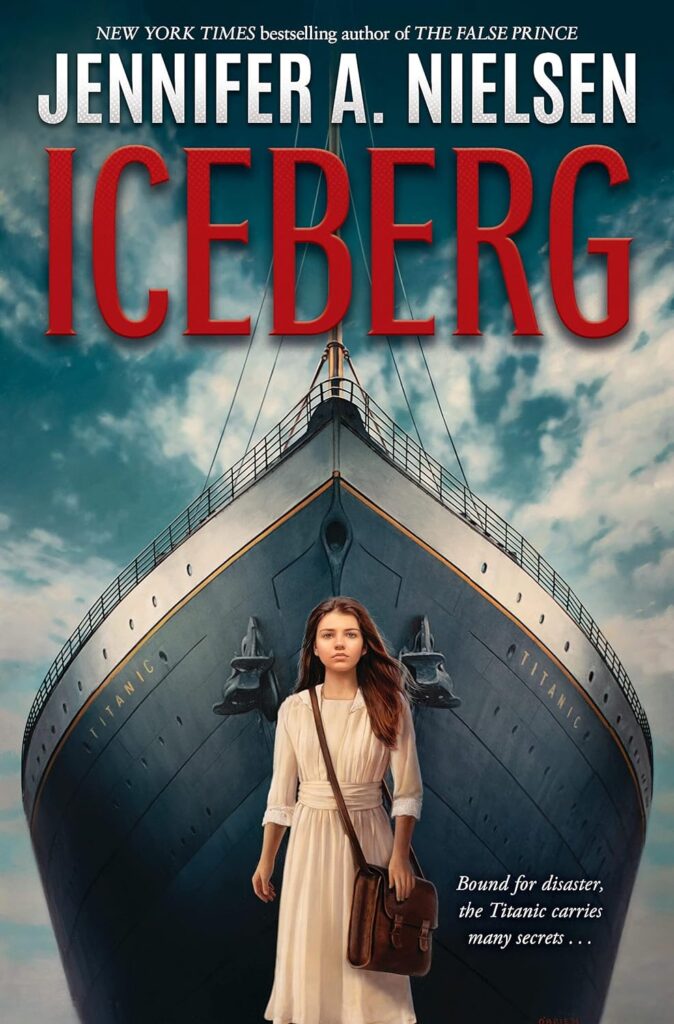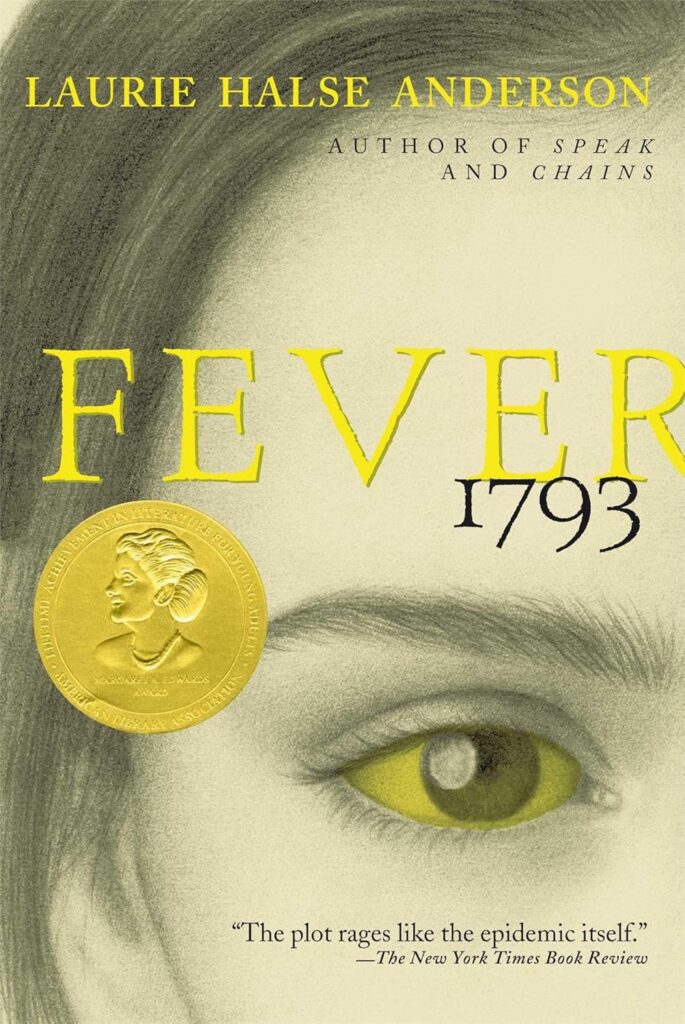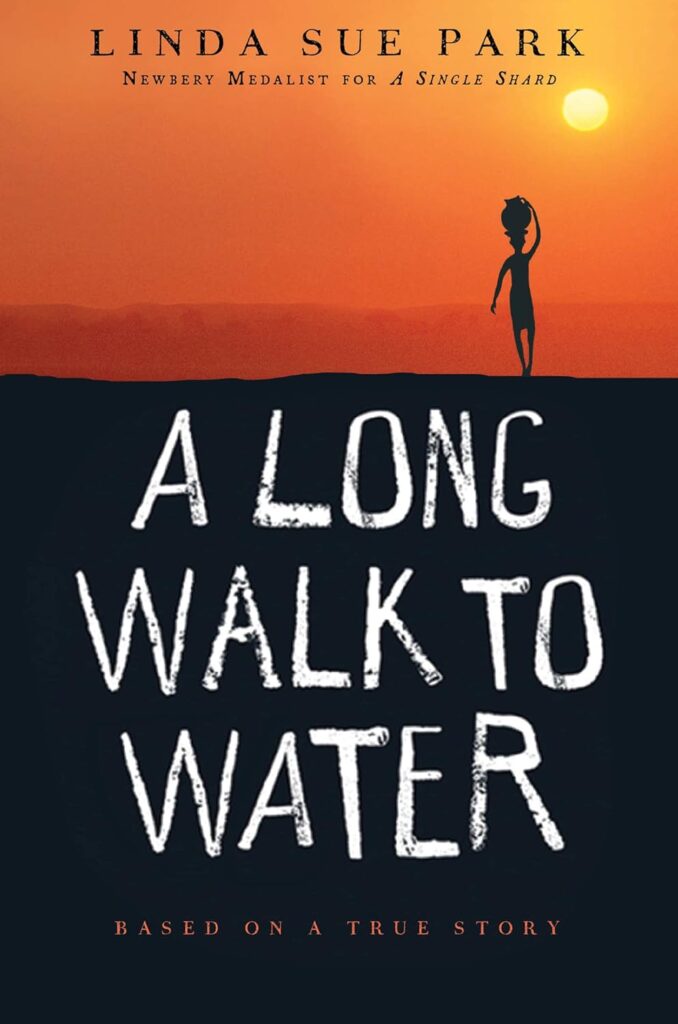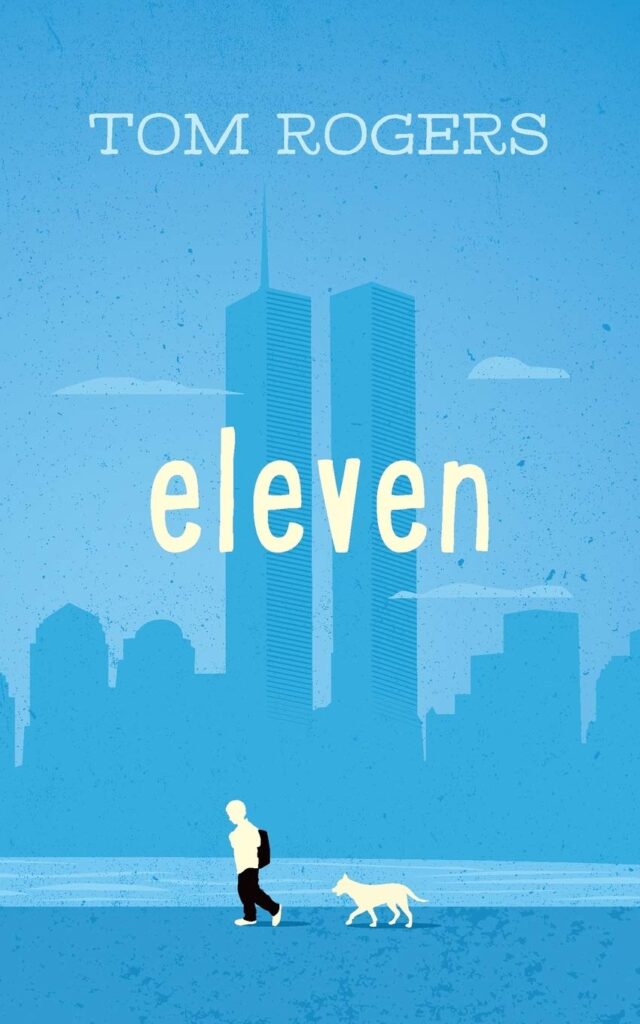When I was in school, history meant maps, dates, wars, and old dead people, none of which interested me. Then my teacher had us read To Kill A Mockingbird. I became so engrossed in the story, I had no idea I was learning about the Great Depression and the South’s attitudes towards race, class, gender, and the law. Sneaky? Maybe. Effective? Absolutely. Humans learn and teach through story. We forget a list of dates almost immediately after memorizing them. But we will never forget how it feels to be fighting for one’s life aboard the Titanic (Iceberg, by Jennifer Nielsen) or trying to survive the plague (Fever, by Laurie Halse Anderson).
Here are a few books that teach various aspects of history (but, shhhh! Don’t tell the kids!)

As disaster looms on the horizon, a young stowaway onboard the Titanic will need all her courage and wits to stay alive. “Distinct supporting characters… demonstrate the harrowing choices people made to survive, encouraging readers to consider what they would have done if fate and history had cast them into the story.” SLJ
Topics: Titanic, class system, Industrialization, women’s rights

Disease sweeps the streets, destroying everything in its path and turning Mattie’s world upside down. At her feverish mother’s insistence, Mattie flees the city with her grandfather. But she soon discovers that the sickness is everywhere, and Mattie must learn quickly how to survive in a city turned frantic with disease.
Topics: epidemics, medicine, slavery, women’s rights

19th century YA tale of social status, mystery and murder in which 16-year-old Victoria Robbins goes to extraordinary lengths to give up her kleptomania, a penchant she shares with neighbor and accused murderess, Lizzie Borden. In her quest to not become Lizzie Borden, Victoria loses old friends, makes questionable new ones and finds her fiercest enemy resides within her own skin. Sprinkled throughout the text are actual newspaper clippings of the infamous Borden case and trial.
Topics: Women’s rights, mental health, crime investigation, society and class differences.

A Long Walk to Water begins as two stories, told in alternating sections, about two eleven-year-olds in Sudan, a girl in 2008 and a boy in 1985. The girl, Nya, is fetching water from a pond that is two hours’ walk from her home: she makes two trips to the pond every day. The boy, Salva, becomes one of the “lost boys” of Sudan, refugees who cover the African continent on foot as they search for their families and for a safe place to stay.
Topics: Sudanese Conflict, Global Water Access, refugees, immigration, and social activism

When Alex rescues a stray dog as a birthday gift to himself, he doesn’t think his life can get much better. Radar, his new dog, pretty much feels the same way. But this day has bigger things in store for both of them. This is Eleven: the journey of a boy turning eleven on 9/11
Topics: Twin towers, 9/11, Heroes, American Symbols, Terrorism, Antiterrorism